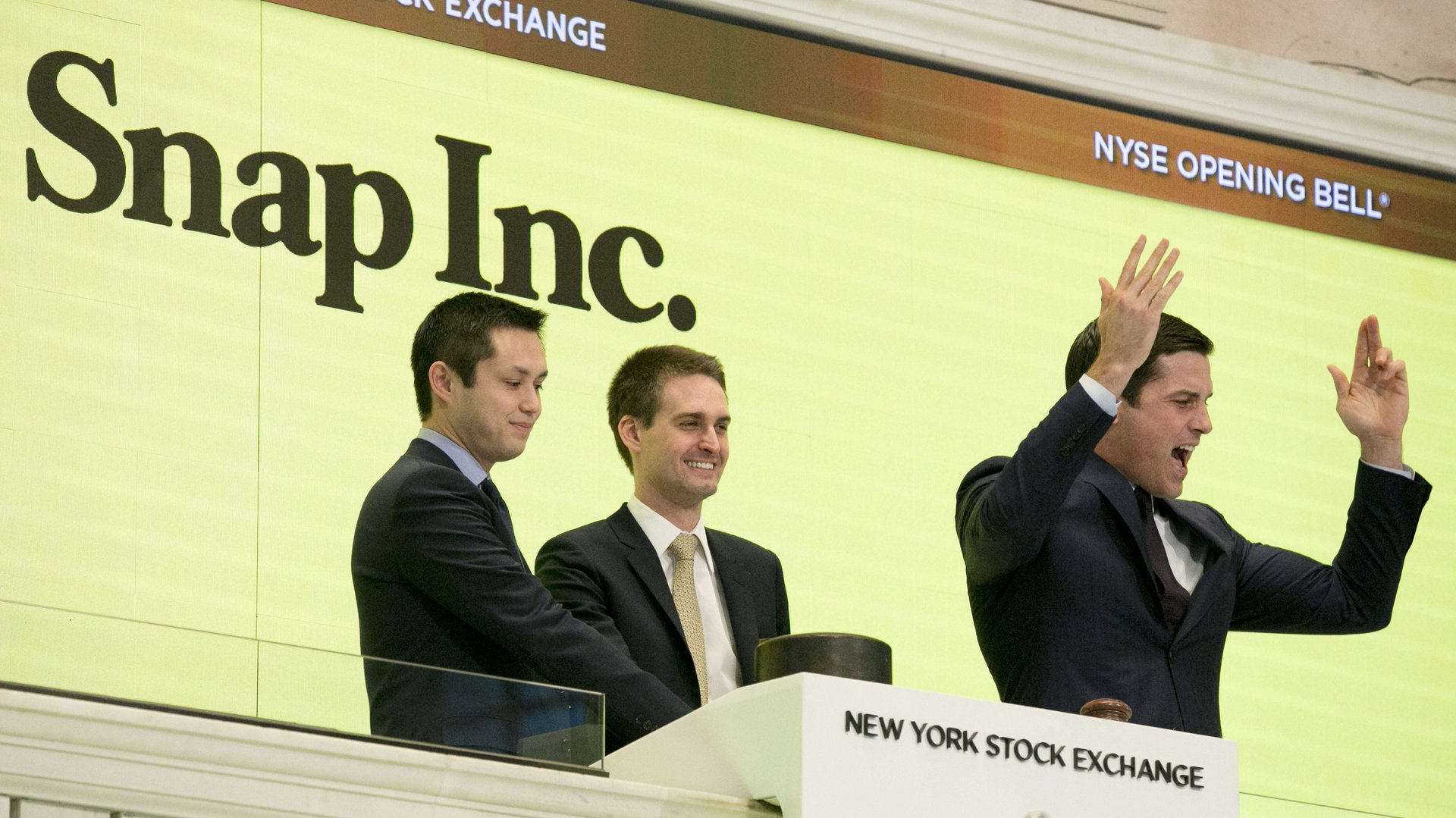Snap pops 40% to start trading at a crackling $33 billion valuation
Snapchat parent Snap just started trading on the New York Stock Exchange at $24 a share, a roughly 40% premium on the $17 IPO price set by the company last night.


Snapchat parent Snap just started trading on the New York Stock Exchange at $24 a share, a roughly 40% premium on the $17 IPO price set by the company last night.
That implies a valuation of about $33 billion—very close to the $31 billion valuation Twitter opened with in 2013. It puts Snap, which is billing itself as a camera company, in a league with companies such as Target (market cap: $32 billion) and Marriott International ($34 billion), and close behind the likes of eBay ($36 billion) and Delta Air Lines ($38 billion).
Snap’s IPO was 12 times oversubscribed, CNBC reported this morning, with some investors getting only 2% of what they requested.
The offering includes 200 million shares of Class A common stock. Those shares are unique among Snap’s stock in that they don’t confer any voting rights on their holders. Snap’s capital structure is expected to help co-founders Evan Spiegel and Robert Murphy retain control even now that the company is publicly traded.
Snap’s decision to go public is a rarity among the current crop of highly valued tech startups. Silicon Valley boasts nearly 200 “unicorns”—industry slang for a private tech company valued at $1 billion or more. Snapchat was chief among them, with an $18 billion valuation from investors prior to its IPO.
Like many of those unicorns, Snap also isn’t profitable. The company spends far more than it makes, with costs and expenses exceeding revenue by $170 million in the fourth quarter of 2016 alone.